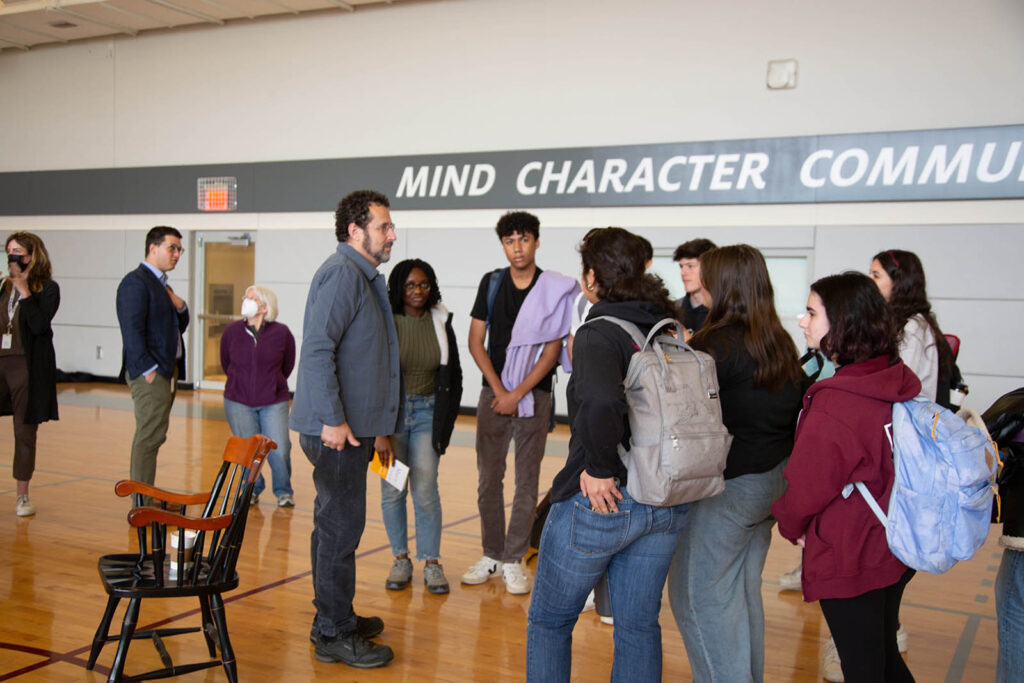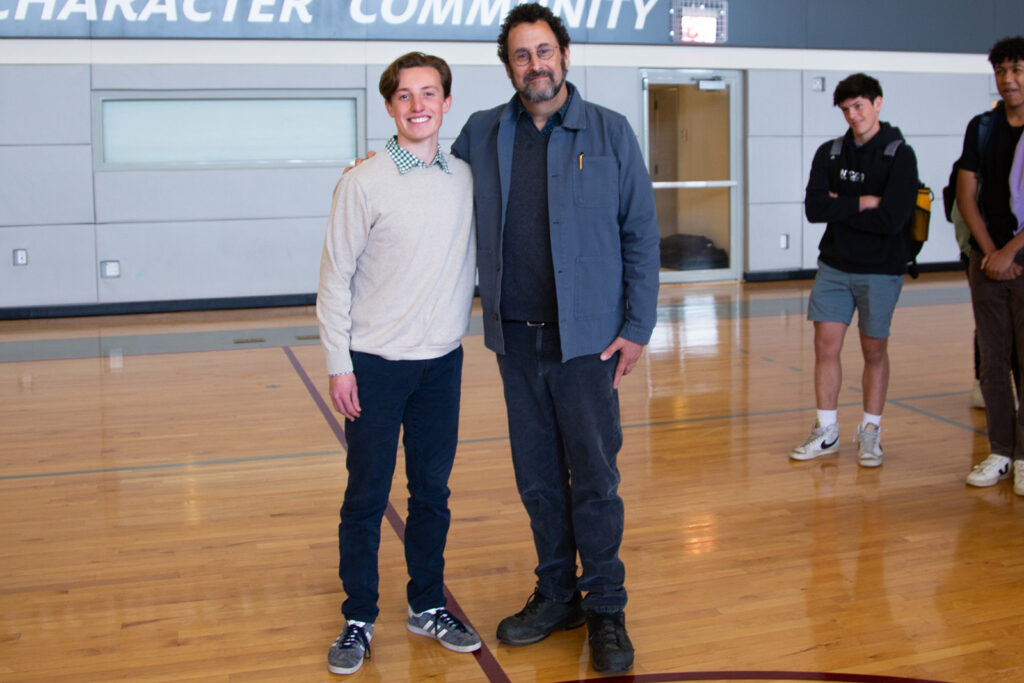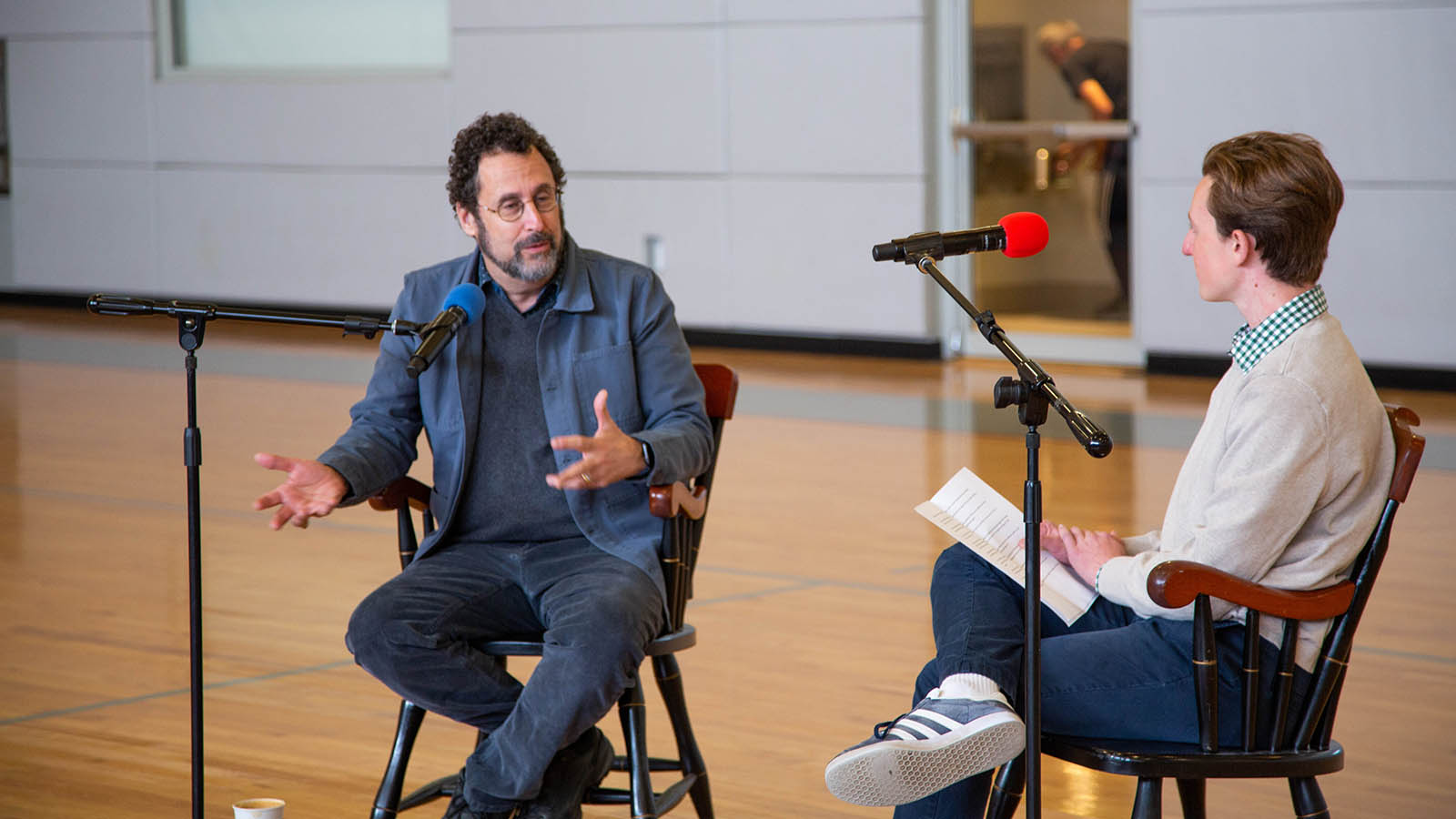
Upper School students welcomed award-winning playwright and screenwriter Tony Kushner to an assembly recently. According to Head of Upper School Tom Taylor, “Our assembly program is designed to offer students exposure to speakers who will challenge, inspire, and prompt their thinking.” Speakers are drawn from the arts, academia, and publishing, as well as Riverdale’s many alumni. Previous speakers have included outdoor adventurer Dom Mullins, physicist Brian Greene, founding president of the 9/11 memorial Joe Daniels, the late Reverend Dr. Calvin O. Butts III, historian and writer Andrew Bacevich, and Tony award-winning Broadway star Brian Stokes Mitchell.
Angels in America, Kushner’s most renowned play, is on the 11th grade Language Arts curriculum at Riverdale. According to Taylor, “Many of our students really connected with Angels in America, so having him here enriches that learning experience.”
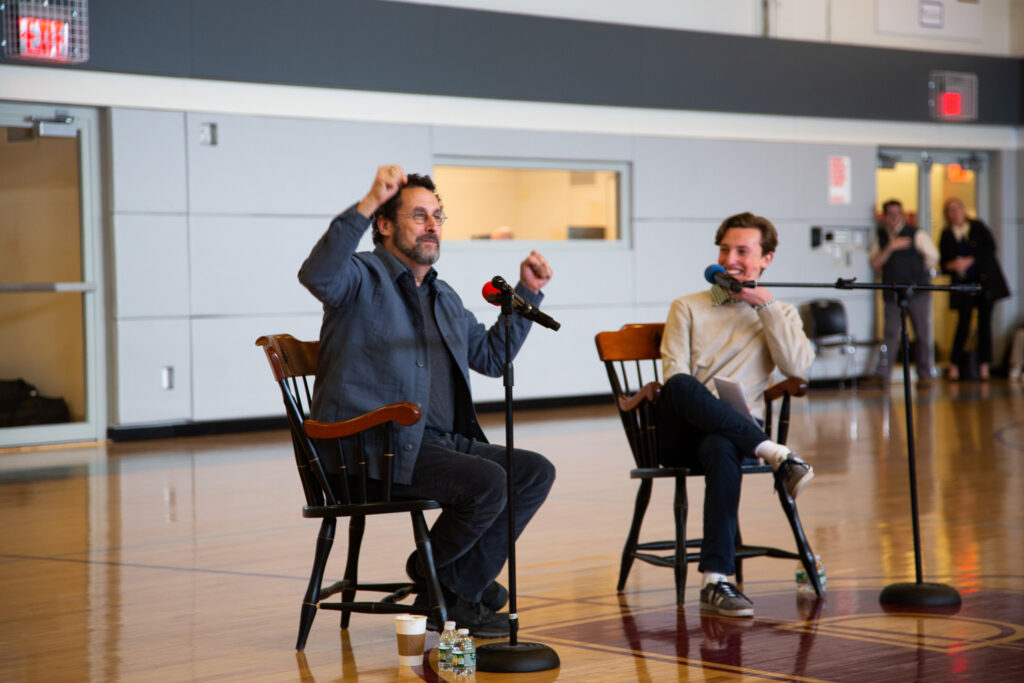
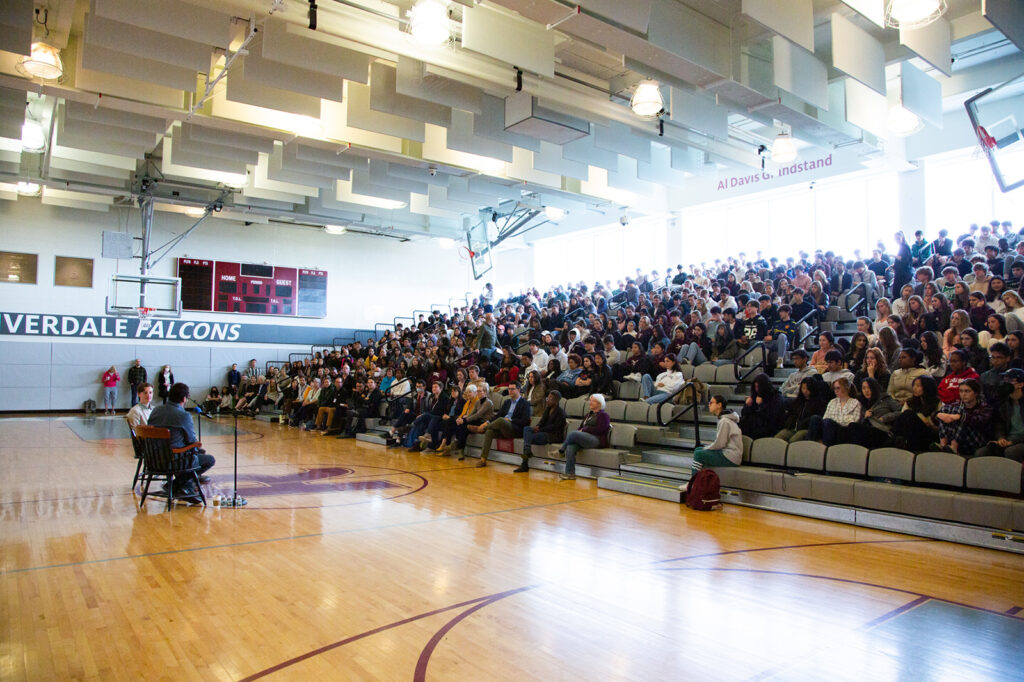
For the assembly with Kushner, Jack Galbraith ‘23 led a conversation that touched on Kushner’s life story and works, as well as his thoughts about why theater is important. From early on, Kushner was inspired to tell stories that matter. He told Galbraith why he was drawn to playwriting. “In my junior year at Columbia, I took a year-long Shakespeare class. Shakespeare made it clear that theater was grappling with the nature of reality and the human condition.”
Kushner also stressed that theater not only entertains but is also a way of teaching people about the reality of life. As he shared, theater “is essential for living life with purpose and with agency and not living life as the tool of history, but as somebody who has a shot at shaping or at least contributing to the shaping of the human story and to make the world a more livable world in the sphere of human life that we inhabit.” He continued, “When you see something on stage that’s really powerful, at certain moments, it’s at least convincing enough to bring you to tears or to make you laugh or to make you scream in shock. But sometimes, it happens. And, in those moments, you aren’t entirely clear on what you’re watching is unreal.”
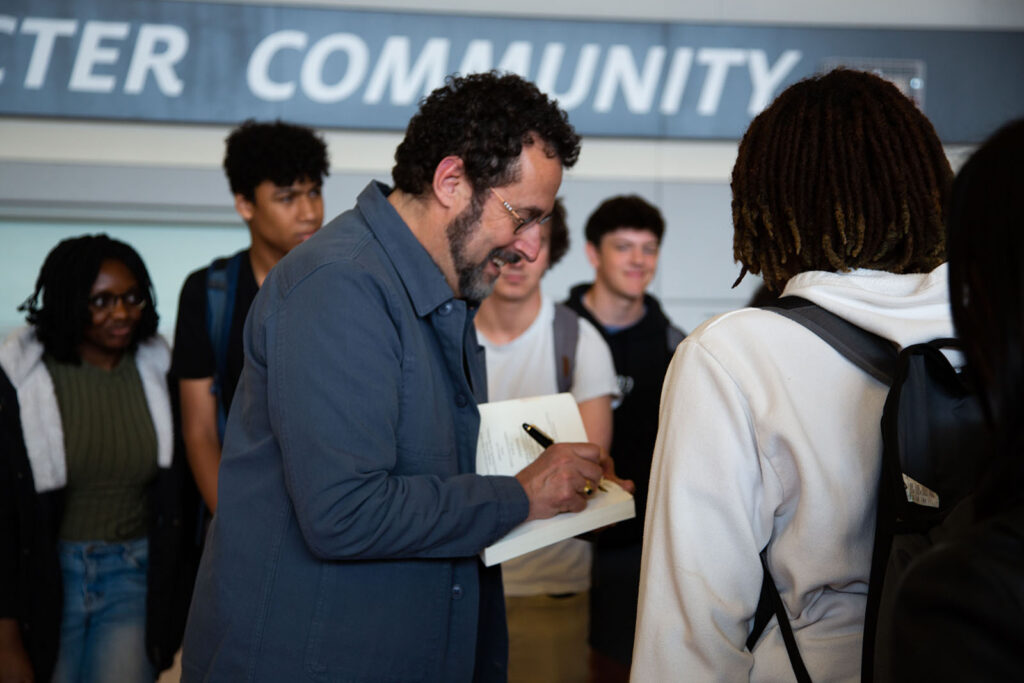

Kushner encouraged all of the students to deepen their understanding of both theater and the world by reading a certain play by Shakespeare. He said, “If you want to understand theater perfectly, read Midsummer Night’s Dream. It’s Shakespeare’s artistic manifesto. The sleeper and the dream seem to me a lot like the relationship between an audience and theater. You go into the dark, you’re immobile . . . You either forget about it completely the next day, or you’ll remember it vividly.”
